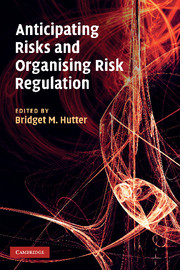Book contents
- Frontmatter
- Contents
- Contributors
- Preface
- Part I Introduction
- Part II Threat, vulnerabilities and insecurities
- Part III Social, organisational and regulatory sources of resilience and security
- 7 Regulating resilience? Regulatory work in high-risk arenas
- 8 Critical infrastructures, resilience and organisation of mega-projects: the Olympic Games
- 9 Creating space for engagement? Lay membership in contemporary risk governance
- 10 Bioethics and the risk regulation of ‘frontier research’: the case of gene therapy
- 11 Preparing for future crises: lessons from research
- 12 Conclusion: important themes and future research directions
- References
- Author index
- Subject index
8 - Critical infrastructures, resilience and organisation of mega-projects: the Olympic Games
Published online by Cambridge University Press: 10 November 2010
- Frontmatter
- Contents
- Contributors
- Preface
- Part I Introduction
- Part II Threat, vulnerabilities and insecurities
- Part III Social, organisational and regulatory sources of resilience and security
- 7 Regulating resilience? Regulatory work in high-risk arenas
- 8 Critical infrastructures, resilience and organisation of mega-projects: the Olympic Games
- 9 Creating space for engagement? Lay membership in contemporary risk governance
- 10 Bioethics and the risk regulation of ‘frontier research’: the case of gene therapy
- 11 Preparing for future crises: lessons from research
- 12 Conclusion: important themes and future research directions
- References
- Author index
- Subject index
Summary
There has been much debate about the incorporation of resilience into critical infrastructures. Whether a piece of infrastructure is critical tends to be a matter of interpretation. However, most definitional attempts share a common focus upon highly interdependent supply chains, complex organisational decision structures, communication networks and transport linkages that enable mass social and economic activities. These include traditional network technologies such as communications, energy, water and transport, as well as life-essential supply chains, such as food supply or financial transaction and budgeting systems. The significance of discussing resilience in critical infrastructures is not confined to threats from international terrorism and pandemics. Resilience is integral to day-to-day design and operation of such networks.
In this chapter, we focus on resilience in the context of the organisational planning of critical infrastructures for the organisation and operation of mega-projects. These mega-projects offer an important and illuminating site for analytical exploration even at a preparatory stage. These are large-scale, highly expensive and high-profile events that require an intensive and extensive state of planning and organisation for a given time period in one or a small number of specific localities.
This chapter considers a specific mega-project: planning for, and organisation of, the Olympic Games. The Olympics in general are both a topical and appropriate case for the analysis of resilience, critical infrastructures and mega-projects.
- Type
- Chapter
- Information
- Anticipating Risks and Organising Risk Regulation , pp. 161 - 184Publisher: Cambridge University PressPrint publication year: 2010
- 3
- Cited by



